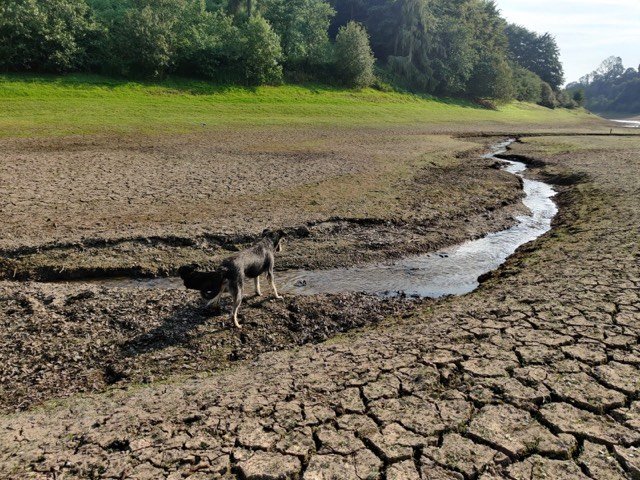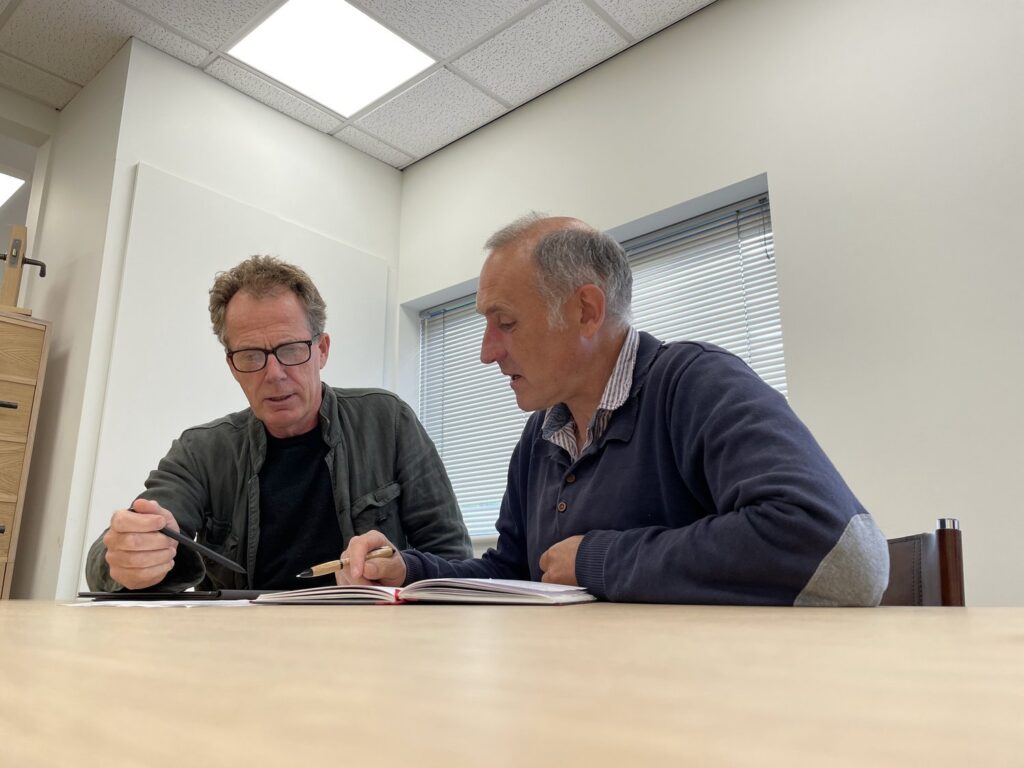I was around in 1976, and the ancient chalk river Ver in my native St Albans completely dried up; you could walk along the cracked, fissured river bed, all the fish in the lakes in Verulamium Park were dead. It was shocking! We heard today that many species are currently being threatened due to rivers drying up again, caused in part by pulling water from the aquafers to meet demand for people.
I was in the park a few weeks ago and there is still water in the river and lake, but well down. 1976 was preceded by a dry year in 1975 so the problem was compounded – what’s our summer going to like next year, the year after?

Water is the vital component for life, I am happy to pay for it, but not for greed to satisfy share holders and over inflated chief exec’s salaries. There has to be a change in direction now to ensure that all biodiversity survives, greater investment must be made in infrastructure and water preservation. We do have plenty of water coming out of the sky – free, at many times of the year, and countries that experience regular extreme temperatures capture and use this for the dry periods.
Encouraging domestic homes and businesses to install rainwater harvesting measures to increase demand would be a positive step at this point, such as VAT breaks on green kit, or policy for subsidising certain sectors. Rainwater harvesting would not only ensure a stored precious resource for flushing toilets, washing clothes and garden or allotment watering, it would also provide a relief for increasingly frequent intense storms, mitigating the storm surge into sewage systems to reduce the incident of river and sea pollution.
In the immediate term we can all do our bit to save water, without impacting our lives dramatically:
At home
- Turn of the tap when cleaning your teeth (break a habit, be conscious)
- Shower – get wet, turn off, lather up / shampoo, wash out. It’s possible!
- Let the grass go brown – it will come back
- Check your toilet for a water saving flush (the smaller button), put a brick in old style cisterns (or something to displace some of the volume)
- Use grey water (bath, shower water) for watering the garden (but not fruit & veg)
- Set eco wash on your washing machine – more often
- Check all taps for drips, including outside
- Swap having a bath for a short shower if possible
- Look at water saving shower heads in the market, they mix in air but still do the job
- Leave you car dirty a bit longer, just clean the glass, plates and lights (maybe round the door handles, thatdirt is really annoying)
In Business
- Install waterless urinals or sensor activated water control valves
- Monitor and analyse water use, wastewater, and recycling
- With large roofs and large water demand, consider rain water harvesting, save money and water
- Fit sensor taps or slow-release taps in rest rooms (customers often leave them running in pubs andrestaurants)
- Ensure all kitchen washing processes are efficient
Overall just be conscious of water use, the average person estimates they use 20 litres of water a day, it’s actually nearer to 140 litres – let’s do our bit and embed these simple measures into our routines. The problem is not going away, and we can have an impact in our day to day lives – especially if we bring that thinking into our business practices.


